Ginkgo Biloba is the oldest tree species known in the world. Its age is estimated to be 200 million years. This tree is representative of a whole class of gymnosperms plants that existed from the times of the dinosaurs.
Discovered fossils of Ginkgo biloba showed that the tree has not changed over the centuries and has retained its valuable qualities to this day. For long ginkgo biloba is considered extinct in the wild, but in the 17th century German scholars encountered it in China.
Ginkgo biloba is a deciduous tree that reaches 20 to 25 feet tall and lives up to 2500 years. Its leaves are between 5-15 cm long, the seed is about 2 cm, wrapped in a fleshy Myrobalan. It contains butyric acid, which gives an extremely unpleasant smell to the fruit.
In China, the ginkgo biloba is cultivated for at least 1, 500 years. The first information about the tree in European sources are from 1690. Brought in Europe since the 18th century and is today one of the most researched herbs in the world.
Today ginkgo biloba is grown in different parts of the earth in parks and gardens. Surprisingly well tolerated toxicity, makes it very interesting that after a few million years, the tree was about to disappear. Several ginkgo biloba trees are among the only survivors of the atomic explosion over Hiroshima. They are located just 2 km from the explosion site.
Composition of Ginkgo biloba
The composition of this miracle tree includes two main groups of substances flavon- glycozoids and terpene lactones, . These groups are well represented by ginkgolides A, B and C, quercetin and bilobalid kempferol. Ginkgolides and bilobalidites rare phytochemicals that scientists have discovered in recent years.
Selection and storage of Ginkgo biloba
Ginkgo biloba can be purchased as a dietary supplement in specialized shops. The price varies according to the number of capsules in the package. One of the cheapest options is about $4.
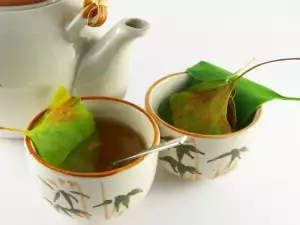
It is not recommended to directly collect it and use for tea or infusions. It is best to use in processed form. The market has a wide variety of products that contain ginkgo. Unfortunately many of them have synthetic ingredients and purity of the product is important.
Benefits of Ginkgo Biloba
One of the main qualities of the herb is to improve peripheral circulation - blood flow to the extremities, brain and sex organs. Ginkgo flavonoids act directly on small blood vessels, expanding them and increasing the speed of the blood flow and oxygen levels in the brain.
Ginkgo biloba stimulates brain function, improves memory and concentration, acts favorably on migraines, normalizes blood pressure. It is used in problems related to poor circulation - diabetic peripheral vascular disease, hemorrhoids, varicose veins, Raynaud's syndrome. People who have suffered a stroke or other brain injury respond well by taking ginkgo.
Improved brain function is one of the main tasks of Ginkgo biloba. It increases the levels of oxygen and glucose, which energizes the brain functions and therefore all neurological functions. Ginkgolides control asthma, anaphylaxis and other allergic inflammation. It is believed that it controls the conversion of cholesterol into plaque that hardens arteries.
Ginkgo biloba restores functions that decrease with aging in people - sight, hearing, etc. They have a very powerful antidepressant effect. Ginkgo biloba in combination with ginseng and aloe vera gives very good results in impotence and infertility. The herb is an excellent means for preventing atherosclerosis, Alzheimer's disease and Parkinson's.
Specialists undermine the quality of Ginkgo biloba. They are completely certain that serious diseases can be treated with this herb.
Dosage of Ginkgo biloba
Extracts of Ginkgo biloba contain varying concentrations of active substances. Most often permitted doses range from 40 to 240 mg per day in three divided doses. Advised to follow the prescription label of the purchased product.
Dangers of Ginkgo biloba
It is believed that the extract of ginkgo biloba can cause some side effects - digestive problems, vomiting, diarrhea, headaches, anxiety and even bleeding. Extracts that contain parts of it should not be used by pregnant or nursing women. In all cases the intake of ginkgo biloba should be agreed upon with a doctor.

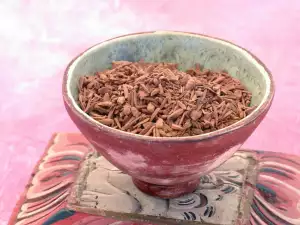
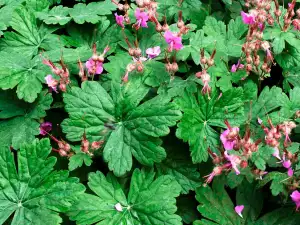
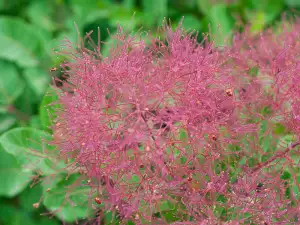


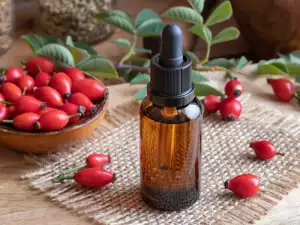




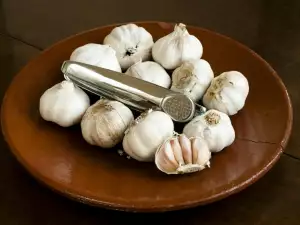




Comments